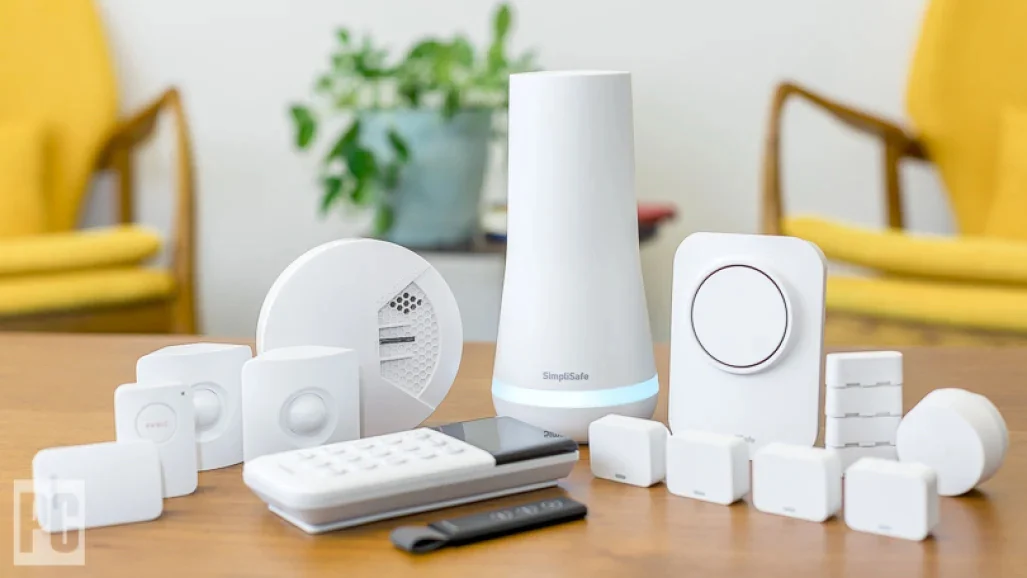How to control your smart home with your internet box
Smart thermostats, roller shutters, controllable light bulbs, security cameras… connected devices are everywhere. But to orchestrate them, you need a home automation hub. Good news: your internet box can already play this role!

Why use your internet box as a home automation hub?
Using your internet box as a home automation hub makes it easy to centralize all your connected devices: light bulbs, blinds, sensors, and cameras. No need to buy a dedicated box; your provider already supplies the gateway. Thanks to integrated protocols (Zigbee, Matter, Wi-Fi), you can control your devices from a single app, with automated scenarios for greater comfort and energy savings. This solution is simple, economical, and scalable, as providers regularly add new compatibility. In short, your box becomes the heart of your smart home.
The advantages:
- A centralized interface via a mobile or TV app.
- Fewer devices to buy and configure.
- Compatible with Zigbee, Z-Wave, Wi-Fi, Bluetooth, and Matter protocols.
- Services included in the subscription, at no major extra cost.
Orange Livebox the connected and secure home
Orange offers a complete ecosystem with its Livebox 6 and 7.
- Zigbee compatible for connecting sockets, sensors, and light bulbs.
- Orange Connected Home app for remote control.
- Creating home automation scenarios: close the shutters at sunset, turn off the lights when you leave.
- Protected Home offers a focus on security (cameras, alarms, detectors).
Orange positions itself as a reliable choice for families seeking a turnkey solution.
Freebox Delta: Free’s premium approach
The Freebox Delta is the most advanced on the market in terms of home automation.
- Integrated Zigbee protocol and Sigfox compatibility.
- Integration with Amazon Alexa for voice control.
- Partnership with Somfy to control shutters, gates, and blinds.
Free targets demanding users who want a premium home automation hub, combining very high-speed internet, multimedia, and a connected home.
Home by SFT security first
SFR offers Home by SFR, a solution focused on home security.
- Packages including cameras, detectors, and alarms.
- SFR Home app to control the equipment.
- Easy installation and integrated customer service.
Limitation: the ecosystem is more closed than that of Orange or Free, and less compatible with third-party connected devices.
Bouygues Telecom towards Matter integration
Bouygues has fallen behind but is betting on the future with Matter.
- Partnerships with Google Assistant and Alexa.
- The Bbox Smart TV already allows you to control certain connected devices.
- The operator is preparing for a broader integration of universal home automation standards.
Bouygues targets users who prioritize interoperability and future compatibility.
Advantages and limitations of internet boxes for home automation
Benefits :
- Simplicity: no need for an additional home automation box.
- Accessibility via the operator’s application.
- Savings: included in the internet subscription.
- Increasing interoperability thanks to Matter.
Boundaries :
- Ecosystems that are sometimes closed (e.g., Home by SFR).
- Operator dependency: changing providers can complicate management.
- Less personalization than specialized solutions (Jeedom, Home Assistant).
Upcoming trends Home automation simplified by internet boxes
The connected home is evolving rapidly, and internet boxes are poised to play a central role in this transformation. By 2025, three major trends are emerging: standardization, artificial intelligence, and smart energy management.
Standardization with Matter and Zigbee
Until now, home automation has suffered from a fragmentation of protocols (Zigbee, Z-Wave, Wi-Fi). The arrival of the Matter standard, supported by Google, Apple, Amazon, and European operators, is a game-changer. This protocol guarantees compatibility between the majority of connected devices, regardless of brand. Thus, a Matter-compatible internet box will become a true universal hub capable of controlling Philips Hue lights, Somfy blinds, or even Xiaomi sensors, without additional gateways.
Artificial intelligence at the service of comfort
AI is gradually becoming a key component of the connected home. According to Statista, the global smart home market is expected to reach $222 billion by 2027, driven by automation and AI. Internet routers will increasingly incorporate machine learning features to anticipate residents’ needs.
- Automatically adjust the temperature according to your habits.
- manage the light according to the outside brightness,
- Optimize energy consumption through personalized recommendations.
These smart assistants will make the home not only connected, but also truly proactive.
Priority to energy efficiency
With rising energy costs, operators are focusing on controlling electricity consumption. Orange, Free, and Bouygues are already integrating energy monitoring tools into their applications. The goal: to transform the internet box into a home energy dashboard, capable of analyzing usage and suggesting real-time savings.
Towards mass democratization
In France, over 40% of households are already equipped with at least one connected device. By 2030, the majority of households are expected to use their internet box as a home automation hub. Thanks to AI and Matter, home automation will become as simple as setting up Wi-Fi, paving the way for mass adoption.
Post Comment